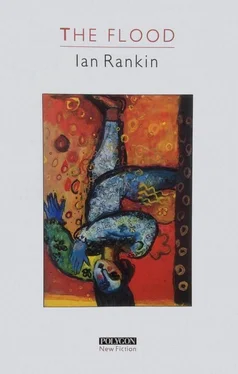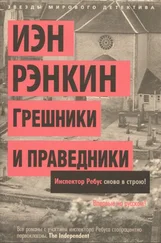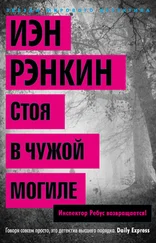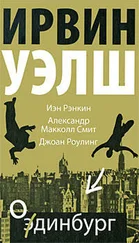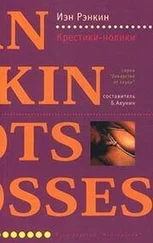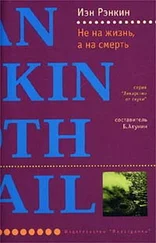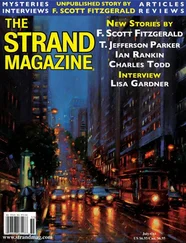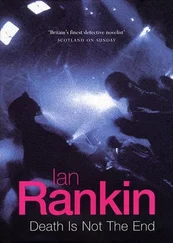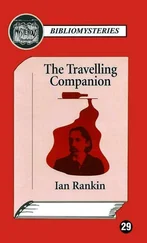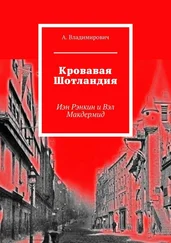She sat at the table and ate her meal in silence. She heaped food on to Sandy’s plate, covered it, and placed it in the warm oven. She then washed and dried the dishes, pots and utensils before making herself some coffee and taking it through to the living room. She looked out of the window for a while, then closed the curtains and switched on the television. She stood in front of the television and sipped her coffee. Eventually she sat in her chair, sighing once before doing so. She resigned herself to sitting like this for several hours. It was a dour prospect. On the screen a quiz show was reaching its climax. A couple from the west coast were dressed up in rabbit costumes and acting out a kind of pantomime. She thought of them sitting at home watching themselves and feeling embarrassed, but laughing it off because they had won the tea service and the grandfather clock and the decanter with six crystal glasses. These prizes would be crammed into their already overflowing house, and if they had video-recorded their efforts they would inevitably show it to any visitor from now until New Year. They would show off the decanter on a shelf in their wall unit. They would open a cupboard, and there, in shadowy hibernation, would be the tea service, awaiting that elusive “special occasion”. They would squeeze past the dully ticking grandfather clock in their narrow hall when they went to bed at night. Their life had been full. Mary wondered why she watched these programmes at all. They did not excite her. People shopping on the following morning would talk about the television programmes, would mention the prizes on the quiz shows admiringly. They seemed excited by it all. Real people, she supposed, were being shown winning for a change, but it was a hollow enough victory.
There was a knock at the door: one, two, three in rapid succession — Andy. She flicked channels to a documentary, and examined herself in the mirror. It was far too late to do anything about her appearance. She hurried to the door and opened it. The street lamp was on now, though the sky was still blue, a deepening blue as if it were a sea rather than a sky. Andy was smiling.
‘Sorry for interrupting,’ he said, but she was already ushering him awkwardly inside. ‘And so late. I hope I’m not...’
‘Nonsense, Andy. I was going out of my mind. Yet another quiet night in front of the goggle-box.’ She felt more relaxed once the door was closed, separating them from the outside world of looks and whispers, whispers and looks. She could feel him relax too. ‘Sandy didn’t come home this evening, so I’ve not spoken to a soul all day.’ This was a white lie. She had spoken to the usual people whom she met while shopping. She had also spoken to her mother, who would turn in her grave if she heard her daughter lying. Mary giggled to think of it, and Andy continued to smile.
‘Anything good on the box?’ he asked, still a slight distance from her.
‘No,’ she answered, nearing him and hugging his waist.
‘We’ll switch it off.’ Their lips touched.
They had met at a parents’ night. She had spent an age that evening in her bedroom making herself presentable. She always liked the teachers to know that Sandy’s mother was nicer than local folklore would have them believe. Mr Wallace was quite new to the school then, and quite new to the area. An outsider, she had thought, a bit like herself. They had got on famously. It had been a few weeks later, however, when they had bumped into each other in Kirkcaldy, that he had actually asked her if they might go for a drink some evening. She had asked him if that were not rather irregular, having already decided to go. He had mumbled something flattering. Yes, it was that meeting that stayed in her mind rather than the more formal first encounter. She had wondered at the time about the propriety of the thing, but Sandy had not batted an eyelid on discovering their attachment. Word spread like wildfire, of course, and the town saw it as a bewitchment. She had made a schoolteacher break the silent golden rule. Andy’s headmaster had spoken to him twice about it, but as yet the young man was refusing to give in to any discreet pressure. He still saw the mother and he still taught the son, and the town still whispered with hissing venom behind their backs. Carsden had become just a little colder since then, but Andy did not care. He knew that he was infatuated, and he knew that the infatuation was worth anything, even if it meant having to resign. Sometimes he wondered if the woman with the old hair and young face, who could tell so many bitter tales, really was a witch. Sometimes there seemed no other explanation. Then he would become rational again and smile at his foolishness. Just as he was smiling now, sitting with a cup of coffee in one hand while the other curved against Mary’s back. The radio playing old songs. The newly kindled fire sparking its way into life.
‘I had a letter from my brother this morning,’ Mary said. ‘He’s very interested in you. He likes to take an interest in what’s going on.’
‘He’s never been back here, has he?’ asked Andy, pushing gently at the tight contours of her spine.
‘Not for a long time,’ she said.
Weeds sprouted regally through the growing mesh of lawn around the mansion. They crept, too, along and up the cracked and flaking walls. Silent, insidious, they coloured the air with an aroma of rank and abundant decay, and tinted the house with the hue of disuse.
The mansion was silent beneath their onslaught, like an exhausted and dying elephant, once majestic. Its large ground-floor windows were securely covered by sections of wood which had dried and moistened through recurring seasons, twisting and knotting their sinews like those of a living thing. The upper floor, with its slightly smaller windows, had shutters too, but parts of these had slipped and fallen, allowing areas of glass to appear as targets for an evening’s energetic and restless children. These jagged edges of glass caught the red of the early evening sun and seemed to run rust-coloured streaks to the wood beneath them.
People usually averted their eyes from this building whenever they passed, for they felt chilled by the boarded up windows, by the complacent and public display of what was, after all, a slow death. The grand illusion of ownership.
The mansion, built in the late nineteenth century at the request of, it was said, a close friend of the Earl of Wemyss, was best known for the role it had played of hospital. No local knew its complete history, but it was known that it had once been Fife’s first hospital for the treatment of tuberculosis, and many patients had entered through its doors for the promised revolutionary treatments. Its wards had quickly filled with those admitted by the local doctor and those from further away who hid in small private rooms and were visited daily by well-dressed people burdened with flowers and boxes of delicate chocolates. Curiously, the patients themselves all looked the same: the same pallid faces and heavy chests, the same defeated eyes. They would sit all day in front of the large windows and soak up what sunshine there was. This was in the early 1900s. Later, with tuberculosis a menace of the past, the hospital became a home for shell-shocked war veterans. Cries could be heard over the growing hamlet, the cries of men for whom war was still a raging demand on their nightmares. Later still, the local doctor moved into the sprawling house, but, finding it ghost-ridden and difficult to heat, soon moved out and into a smaller house which had once belonged to one of the local pit managers. People knew even then, in the 1960s, that the town was in some way preparing for its last stand, and the mansion became a symbol of incipient decay and neglect. No one, it seemed, wanted a ghostly house, a large damp house, a rambling hospital which had once been splashed with blood and bile and the echoing groans of madness and death. So it was that, after countless raids by gangs of children, the edifice was nailed shut. A local solicitor still held details of its owner and value, should any offer be forthcoming, but that was just so much dust and fawn-edged paper in some long-forgotten file. Much of the lead now gone from the roof, tarpaulin and polythene having taken its place, the mansion was a soiled relic, a fitting beast to be overlooking the smoky town from its slight and now anachronistic prominence, its quarter-mile of distance.
Читать дальше
